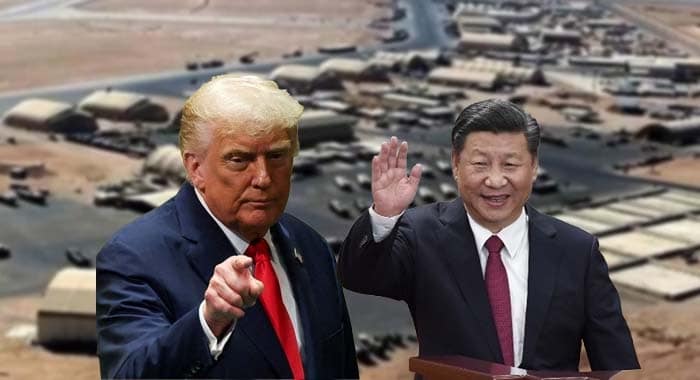A senior Chinese diplomat has reaffirmed Beijing’s unwavering respect for Afghanistan’s sovereignty and territorial integrity during a recent meeting with the Taliban’s ambassador to China.
Liu Jinsong, Director-General of the Asian Affairs Department at China’s Ministry of Foreign Affairs, marked the 70th anniversary of diplomatic ties between China and Afghanistan, emphasising the long-standing peaceful and cooperative relationship between the two nations.
According to a statement from the Taliban embassy in Beijing, the discussions focused on enhancing bilateral ties, expanding economic and trade cooperation, improving consular services, and addressing other vital areas of collaboration.
Taliban Ambassador Bilal Karimi lauded the historic partnership and expressed gratitude to China for its humanitarian aid to earthquake-affected families in Afghanistan’s eastern provinces.
This dialogue takes place amid escalating concerns in China and neighboring countries about the potential return of U.S. military forces to Afghanistan. On the sidelines of the United Nations General Assembly in New York, the foreign ministers of China, Russia, Iran, and Pakistan issued a joint warning that any renewed U.S. military presence, particularly at Bagram Air Base, would destabilise the region and threaten security.
U.S. President Donald Trump has criticised the withdrawal of American troops from Afghanistan and hinted at plans to reestablish control over Bagram. The Taliban, meanwhile, have firmly rejected any renewed U.S. military footprint, though their willingness to engage in direct talks with Washington remains uncertain.
Subheading:
China, Russia, Iran, and Pakistan Unite Against US Military Return to Afghanistan
In a coordinated statement, China, Russia, Iran, and Pakistan expressed strong opposition to any foreign military redeployment in Afghanistan, calling it detrimental to regional peace and stability.
Chinese Foreign Ministry spokesperson Guo Jiakun emphasized that the four countries conveyed a unified stance during their recent quadrilateral foreign ministers meeting, reaffirming their respect for Afghanistan’s sovereignty and independence.
The communiqué condemned the presence of foreign forces, particularly those deemed responsible for Afghanistan’s ongoing turmoil, underscoring the shared commitment to support Afghanistan’s reconstruction and sustainable peace.
This joint declaration followed U.S. President Trump’s announcement of efforts to regain control of Bagram Air Base, a move sharply opposed by Taliban leaders.
Analysts suggest this regional consensus signals an emerging alignment against renewed Western military involvement in Afghanistan, reflecting broader geopolitical tensions between the United States and China. Many observers question whether this standoff marks the beginning of a new cold war or even edges the world closer to a third global conflict.
The four nations have also urged the Taliban to dismantle terrorist organisations, establish an inclusive government, and improve rights and conditions for women, girls, and minority groups in Afghanistan — steps seen as crucial for lasting peace.





